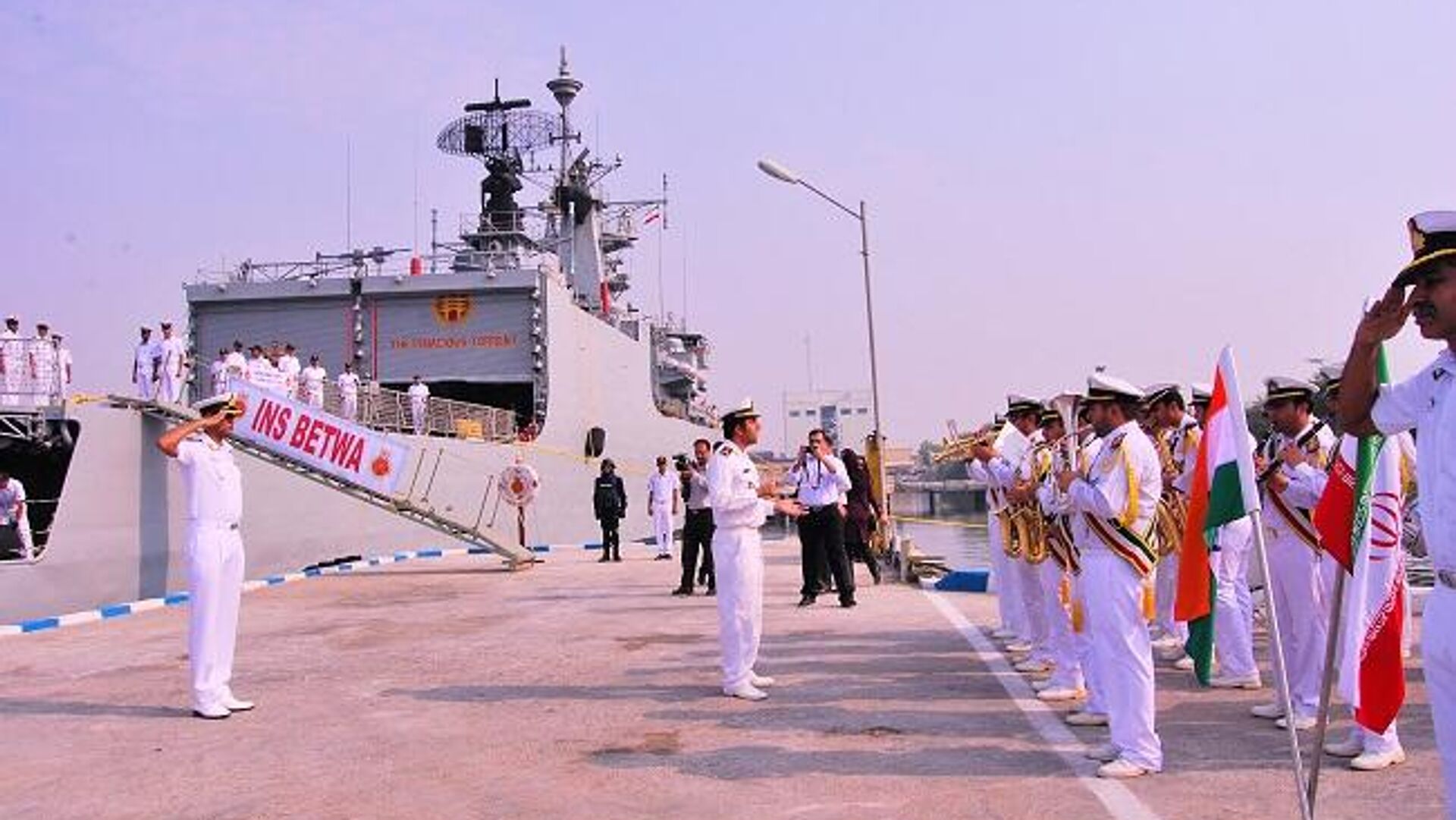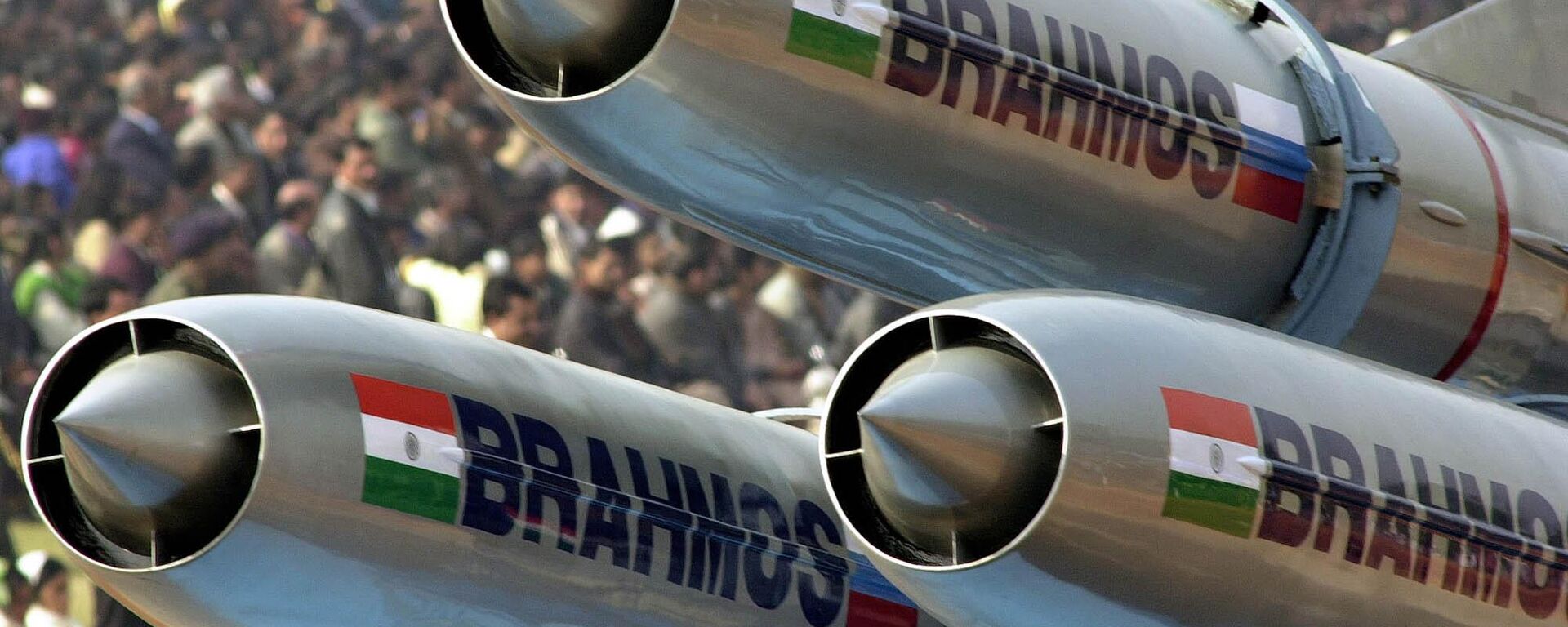https://sputniknews.in/20241004/indian-naval-ships-in-bandar-e-abbas-may-be-under-threat-amid-rising-conflict-8234877.html
Indian Naval Ships in Bandar-e-Abbas May Be Under Threat Amid Rising Tensions
Indian Naval Ships in Bandar-e-Abbas May Be Under Threat Amid Rising Tensions
Sputnik India
On Tuesday, three Indian vessels, the INS Shardul, INS Tir, and ICGS Veer, docked in Bandar-e-Abbas, Iran, as part of long range training deployment in the... 04.10.2024, Sputnik India
2024-10-04T19:45+0530
2024-10-04T19:45+0530
2024-10-04T21:31+0530
sputnik opinion
s. jaishankar
narendra modi
india
iran
israel
indian navy
government of india
ministry of external affairs (mea)
ministry of defence (mod)
https://cdn1.img.sputniknews.in/img/07e8/0a/04/8239553_0:21:651:387_1920x0_80_0_0_4de528c1f36e56d18d5d3a4b4d64c496.jpg
While in Iran, the Indian ships will participate in activities centred on maritime security and interoperability, including professional exchanges and partnership exercises.The Middle East is nearing a potential regional war as Israel vowed retaliation following a missile attack by Iran on Tuesday night, marking a day of intense military escalation.Iran fired approximately 200 ballistic missiles at Israeli military targets, the largest attack of its kind, triggering sirens throughout Israel and activating its advanced air defence systems.Iranian leaders indicated the attack was a warning to Israel against engaging in direct conflict, threatening that any response would result in "stronger and more painful" retaliation.India doesn't have any direct bearing or impact on the ongoing situation with Israel and Iran, Captain (Retd.) Sarabjeet S Parmar, distinguished fellow at the Council for Defence and Strategic Research, told Sputnik India.This visit supports India's efforts to expand its maritime presence in the Persian Gulf region, as it involves a routine training deployment from a Kochi-based squadron, enhancing India’s strategic interactions in the area, according to Parmar.India has maintained long-standing bilateral relationships with several West Asian countries, including Saudi Arabia, Iran, and Qatar, he added noting, “therefore, this engagement is part of normal diplomatic activities rather than a reaction to current tensions”.He believes Israel will respond cautiously. Should any retaliation occur, it is likely that Israel will communicate a warning for others to leave Iran, which would serve as a caution for all those involved, he added.Iran remains a significant partner for India, especially with the commissioning of the Chabahar port and the pursuit of the International North-South Transit Corridor, which is crucial for connecting to Central Asia, Seshadri Vasan, director general of the Chennai Centre for China Studies, told Sputnik India.India has been conducting exercises with the Oman Navy and has agreements for using Duqm, while also maintaining strong relations with Iran, especially after the operationalisation of Chabahar, to support its commercial interests, he emphasised.Maintaining strong relations with Iran is essential for advancing India’s long-term strategic interests while upholding the historical ties between the two nations, even amid tensions involving Israel and its allies, he asserted.Amid rising tensions, Israel's response and actions by external players, particularly the US and the West, may further heighten the escalation in the Middle East, the pundit suggested.He mentioned that India engages regularly with various navies across Southeast Asia and the Middle East, and in terms of Bandar-e-Abbas, the Indian Navy is likely to act prudently, withdrawing to its base and monitoring the situation from afar.On Monday, Indian Prime Minister Narendra Modi spoke with Israeli Prime Minister Benjamin Netanyahu about the Middle East conflict, emphasising that terrorism has no place in the world and affirming that "India is committed to supporting efforts for an early restoration of peace and stability".Indian External Affairs Minister S Jaishankar expressed on Tuesday that India is "very much" concerned about the potential for a regional war in West Asia, stating that "any response by any country" must adhere to international humanitarian law, according to news agency ANI.He acknowledged Israel's need to respond, but emphasised that any action taken should consider international humanitarian law and be cautious of its impact on civilian populations. Jaishankar also called for an international humanitarian effort in the Gaza Strip.
https://sputniknews.in/20240910/india-has-potential-to-boost-arms-exports-to-saudi-arabia-8131577.html
india
iran
israel
indian ocean
middle east
yemen
oman
chabahar port
red sea
palestine
Sputnik India
feedback.hindi@sputniknews.com
+74956456601
MIA „Rossiya Segodnya“
2024
Swapna Nair
https://cdn1.img.sputniknews.in/img/07e7/09/12/4320104_0:0:681:681_100x100_80_0_0_ca8a7d4d582609272840ffdd1cde7278.jpg
Swapna Nair
https://cdn1.img.sputniknews.in/img/07e7/09/12/4320104_0:0:681:681_100x100_80_0_0_ca8a7d4d582609272840ffdd1cde7278.jpg
News
en_IN
Sputnik India
feedback.hindi@sputniknews.com
+74956456601
MIA „Rossiya Segodnya“
Sputnik India
feedback.hindi@sputniknews.com
+74956456601
MIA „Rossiya Segodnya“
Swapna Nair
https://cdn1.img.sputniknews.in/img/07e7/09/12/4320104_0:0:681:681_100x100_80_0_0_ca8a7d4d582609272840ffdd1cde7278.jpg
s. jaishankar, narendra modi, india, iran, israel, indian navy, government of india, ministry of external affairs (mea), ministry of defence (mod), indian ocean, middle east, military equipment, israel defense forces (idf) , defense sector, yemen, oman, international north-south transport corridor (instc), chabahar port, red sea, palestine
s. jaishankar, narendra modi, india, iran, israel, indian navy, government of india, ministry of external affairs (mea), ministry of defence (mod), indian ocean, middle east, military equipment, israel defense forces (idf) , defense sector, yemen, oman, international north-south transport corridor (instc), chabahar port, red sea, palestine
Indian Naval Ships in Bandar-e-Abbas May Be Under Threat Amid Rising Tensions
19:45 04.10.2024 (Updated: 21:31 04.10.2024) On Tuesday, three Indian vessels, the INS Shardul, INS Tir, and ICGS Veer, docked in Bandar-e-Abbas, Iran, as part of long range training deployment in the Persian Gulf.
While in Iran, the Indian ships will participate in activities centred on maritime security and interoperability, including professional exchanges and partnership exercises.
The Middle East is nearing a potential regional war as Israel vowed retaliation following a missile attack by Iran on Tuesday night, marking a day of intense military escalation.
“Iran made a big mistake tonight, and it will pay for it”, Israeli Prime Minister Benjamin Netanyahu declared.
Iran fired approximately 200 ballistic missiles at Israeli military targets, the largest attack of its kind, triggering sirens throughout Israel and activating its advanced air defence systems.
Iranian leaders indicated the attack was a warning to Israel against engaging in direct conflict, threatening that any response would result in "stronger and more painful" retaliation.
India doesn't have any direct bearing or impact on the ongoing situation with Israel and Iran, Captain (Retd.) Sarabjeet S Parmar, distinguished fellow at the Council for Defence and Strategic Research, told Sputnik India.
This visit supports India's efforts to expand its maritime presence in the
Persian Gulf region, as it involves a routine training deployment from a Kochi-based squadron, enhancing India’s strategic interactions in the area, according to Parmar.
India has maintained long-standing bilateral relationships with several West Asian countries, including Saudi Arabia, Iran, and Qatar, he added noting, “therefore, this engagement is part of normal diplomatic activities rather than a reaction to current tensions”.
However, “there is always a possibility that if Israel launches a counter-attack or a strike against Iran and there is always a potential danger of a missile going rogue or even if Bandar-e-Abbas is attacked,” he highlighted.
He believes Israel will respond cautiously. Should any retaliation occur, it is likely that Israel will communicate a warning for others to leave Iran, which would serve as a caution for all those involved, he added.
Iran remains a significant partner for India, especially with the commissioning of the Chabahar port and the pursuit of the International North-South Transit Corridor, which is crucial for connecting to Central Asia, Seshadri Vasan, director general of the Chennai Centre for China Studies, told Sputnik India.
India has been conducting exercises with the Oman Navy and has agreements for using Duqm, while also maintaining strong relations with Iran, especially after the operationalisation of Chabahar, to support its
commercial interests, he emphasised.
Maintaining strong relations with Iran is essential for advancing India’s
long-term strategic interests while upholding the historical ties between the two nations, even amid tensions involving Israel and its allies, he asserted.
“India aims to remain neutral and is not acting as a military partner like the United States or Western nations that have sent destroyers to support Israel”, Vassan elaborated.
Amid rising tensions, Israel's response and actions by external players, particularly the US and the West, may further heighten the escalation in the Middle East, the pundit suggested.
He mentioned that India engages regularly with various navies across Southeast Asia and the Middle East, and in terms of Bandar-e-Abbas, the Indian Navy is likely to act prudently, withdrawing to its base and monitoring the situation from afar.
On Monday, Indian Prime Minister Narendra Modi spoke with Israeli Prime Minister Benjamin Netanyahu about the
Middle East conflict, emphasising that terrorism has no place in the world and affirming that "India is committed to supporting efforts for an early restoration of peace and stability".
Indian External Affairs Minister S Jaishankar expressed on Tuesday that India is "very much" concerned about the potential for a regional war in West Asia, stating that "any response by any country" must adhere to international humanitarian law, according to news agency ANI.
He acknowledged Israel's need to respond, but emphasised that any action taken should consider international humanitarian law and be cautious of its impact on civilian populations. Jaishankar also called for an international humanitarian effort in the Gaza Strip.



